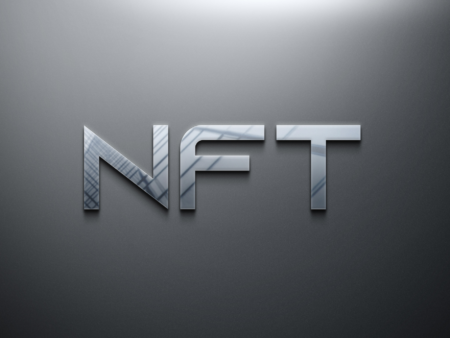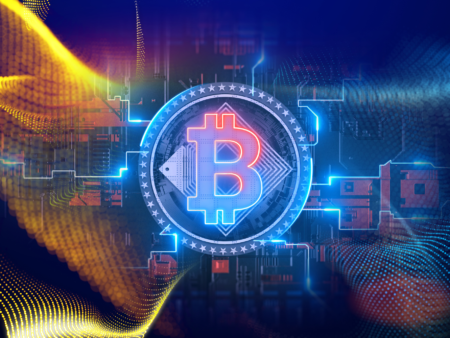NFT market aggregators are platforms that allow users to browse and discover NFTs from multiple different marketplaces.

It is now common to speak of NFTs in the cryptoverse due to their widespread adoption and extravagant market cap. It is crucial to assess which NFT marketplace aggregator to use since many new NFT projects have emerged over the last two years. Thus, we must ask: what do NFT marketplace aggregators do, and how do they benefit us?
Understanding NFT Marketplaces
NFTs are minted and sold on marketplaces (both centralized and decentralized). They connect creators with buyers and investors and play a crucial role in promoting NFTs. In addition, marketplaces provide investors with a means of trading and flipping NFTs. Cryptocurrencies such as Ethereum, Binance Smart Chain, Polygon, Solana, and others are used to mint NFTs.
In the same way, NFTs can be minted on a variety of blockchains and be listed for sale on various marketplaces based on the preferences of the creators. NFTs are accepted by some marketplaces more strictly, while others accept most (if not all) types. Several marketplaces get all kinds of NFTs, such as OpenSea, SolSea, and Raible. In contrast, others specifically accept photo NFTs, music NFTs, etc.
In light of the many marketplaces available, prudent investors and enthusiasts frequently switch between them. Gas fees and other factors play a big role in determining which marketplace to use. Investing in rare pieces can be tricky, which is when NFTmarketplace aggregators come in to help.
What are NFT Marketplace Aggregators?
Users can view data from multiple sources through an aggregator, which can be a person, website, or software. Basically, NFT aggregators display multiple NFTs from various marketplaces. NFTs can be traded from different marketplaces using these aggregators without visiting the actual marketplaces.
These aggregators serve as all-in-one marketplaces by pooling NFTs from multiple marketplaces and making buying and selling NFTs seamless. Investors can compare NFT prices, gas fees, royalties, and other valuable factors by comparing the various marketplaces they are presented with.
As a result, investors do not have to navigate through various marketplaces and spend less time looking for deals. Market aggregators also facilitate unified purchases, allowing investors to buy NFTs from different sources at once.
How NFT Marketplace Aggregators Work
Data or information collected from NFT marketplace aggregators is categorized and fed to search engines. The following stages are involved.
Data Pooling
NFT’s transactional data is pooled from various marketplaces through data pooling. Market aggregators rely on this pooled information to operate.
Data Aggregation
Using a single catalog or interface, the platform can access pooled data. When data is queried, it is accessible through a single entry point.
Data Classification
Using specific metrics or parameters, data is classified using metrics like rarity, timing, price, rank, etc. Investors and buyers will be able to analyze data seamlessly.
Feeding Data to Search Engines
Once these three stages are completed successfully, users can easily track their favorite NFTs using the platform’s search engines.
Batch Purchase
Users can purchase multiple NFTs from different marketplaces in one transaction with NFT marketplace aggregators, one of their most essential features. As a result of this batch purchase, we save on gas fees that would have otherwise been charged on each individual NFT transaction.
Take the example of wishing to purchase 30 NFTs and having to pay 30 different transaction fees. However, with batch purchases, you’ll only pay transaction fees once per NFT.
The main benefits of using NFT aggregators include the following:
- Intuitive interface
- Efficient and rapid search
- The flexibility of data analysis
- Purchases in batches
- Providing convenience
- Adaptability
- An interface that is easy to use
Best NFT Aggregators
Genie
Akash Nigam and Evan Rosenbaum founded Genie in 2014 as a premier NFT marketplace aggregator. In June 2022, Uniswap acquired it. With the launch of the Genie aggregator in November 2021, users can browse inventories of NFTs on marketplaces such as OpenSea, Raible, LooksRare, NFTX, NFT20, and X2Y2. By buying NFTs on multiple marketplaces in one transaction, investors can save up to 40% on gas fees.
Genie allows you to list your NFTs simultaneously on both OpenSea and LookRare, maximizing your exposure. The platform supports Coinbase, MetaMask, and Mobile Wallet.
Gem
This marketplace aggregator was co-founded by Lorens Haculak, Josh Thompson, Deepanjal Gupta, and two others in November 2021. A leading NFT marketplace aggregator quickly emerged after the aggregator protocol went live in January 2022. OpenSea later acquired the Gem on April 24, 2022.
X Marketplace, X2Y2, Universe, NFT20, NFTX, etc., are among the notable NFTs marketplaces that Gems aggregates on the Ethereum network. Like Genie, it allows users to mint and sell NFTs and saves them up to 40% on gas fees. The platform supports Coinbase, MetaMask, and WalletConnect.
Rare board
The Rareboard platform aggregates NFTs from several marketplaces. Along with being an aggregator, Rareboard provides NFT rarity dashboards and price inventory on various marketplaces for NFTs. A number of the largest marketplaces on the BSC network are aggregated on this platform, which runs on Binance Smart Chain. Several BinanceNFT services include PancakeSwap, NFT Trade, Galler.io, etc.
It supports MetaMask WalletConnect, BitKeeper, and Binance Chain wallets so that users can mint and list their NFTs on the Rare board.
Flip
Founded in 2021 by Sam Hotchkiss, Brain Krogsgard, and Jennifer Jacobs, Flip is another marketplace aggregator. Platforms have custom folders that allow users to curate their NFT experience. You can follow your favorite wallets, collections, and NFTs to get real-time notifications whenever they list NFTs for sale.
OpenSea and LooksRare are aggregators on the platform, and more marketplaces will be added as time goes on. MetaMask is supported on the platform, along with others to be added. You can sign up using your wallet, Apple, Google, Twitter, or email address.
Marketing NFT Trading Easier
Traders can trade NFTs seamlessly with the help of their NFT marketplace aggregators, which are a new generation of NFT protocols. The NFT aggregators above are just some good ones, as there are others, including Blur, NFTGO, Orion, and Ludo.











